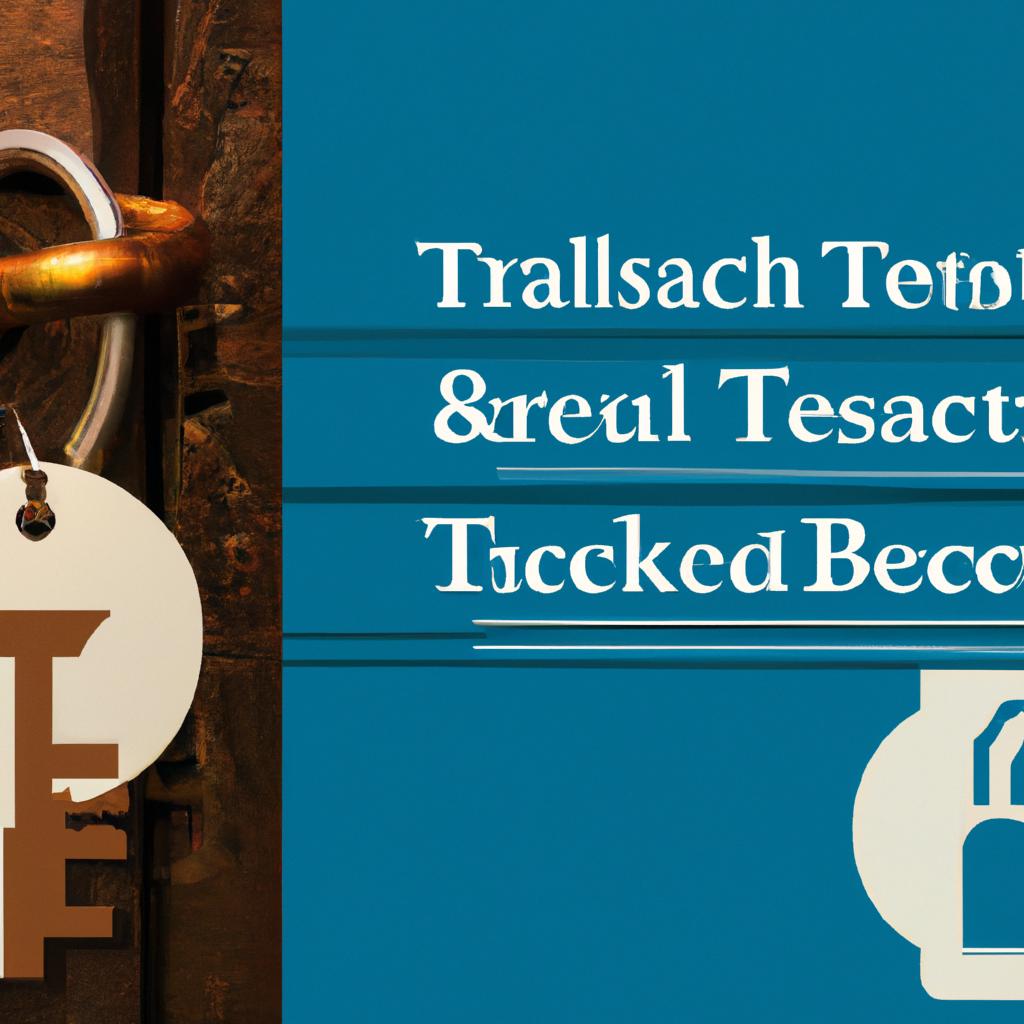Estate and Trust Accounts: A Comprehensive Comparison
Estate planning has evolved from being exclusive to the wealthy elite to a crucial aspect of financial planning for individuals from all walks of life. It is essential to distinguish between the terms “estate” and “trust account” and understand the key disparities between the two mechanisms for asset distribution after one’s passing.
Understanding Estate Planning and Trust Accounts
Estate: The term “estate” encompasses all assets and liabilities at the time of an individual’s death. It is managed either by an executor or a personal representative appointed in the individual’s will. The distribution of assets is determined by the will or state laws if there is no will in place.
Trust Account: A trust account is created during an individual’s lifetime to hold and manage assets for the benefit of others. It is managed by a trustee who is responsible for following the instructions outlined in the trust agreement. Assets held in a trust bypass the probate process, providing privacy and potentially expediting distribution.
Key Differences Between Estate and Trust Accounts
Establishment: Estate accounts are created upon an individual’s death, encompassing all their assets and liabilities. On the other hand, a trust is established during one’s lifetime, with a designated trustee managing the assets on behalf of the beneficiaries.
Level of Privacy and Control: Estate accounts are subject to probate, a public process that can be lengthy and costly. Trust accounts, however, are typically private and avoid the probate process, allowing for more control over asset distribution.
Tax Implications: Estate accounts are subject to estate taxes, while assets held in a trust may be protected from such taxes, impacting the overall distribution of assets.
Benefits of Using Trust Accounts in Estate Planning
Trust accounts offer numerous advantages, including the ability to avoid probate, maintain privacy, and provide greater control over asset distribution. They offer a flexible and efficient way to plan for the future and protect assets for generations to come.
Recommendations for Choosing Between Estate and Trust Accounts
Factors to consider when choosing between estate and trust accounts include the level of control desired, potential tax implications, and the complexity and maintenance required for each account type. Seeking professional advice is crucial in making informed decisions to protect and secure assets for oneself and loved ones.
In conclusion, understanding the disparities between an estate and a trust account is vital in navigating the complexities of managing assets and ensuring their proper distribution. Each option has unique benefits and considerations, and seeking professional advice is essential in making the best decision for one’s financial future. Thank you for reading!

The Difference Between Estate and Trust Accounts
When it comes to planning for the future, estate and trust accounts are two popular options that individuals often consider. Here’s a breakdown of the key differences between the two:
Estate Accounts
- Managed by an executor
- Distribution of assets managed according to a will
- Addresses any outstanding debts and taxes
- Subject to probate process
Trust Accounts
- Managed by a trustee
- Assets held in trust for beneficiaries
- Can help avoid probate process
- Offers more privacy and control over asset distribution
Unlocking the Benefits
Benefits of Estate Accounts
Here are some of the key benefits of choosing an estate account:
- Clear guidelines for asset distribution
- Debts and taxes are addressed
- Court oversight ensures proper handling of assets
Benefits of Trust Accounts
Here are some of the key benefits of choosing a trust account:
- Privacy and confidentiality in asset distribution
- Can help avoid the probate process
- Control over how and when assets are distributed
Choosing the Right Option
When deciding between an estate account and a trust account, it’s important to consider your specific needs and goals. Here are some practical tips to help you make the right choice:
Consider Your Family Situation
Think about your family dynamics and how you want your assets to be distributed. If you value privacy and control, a trust account may be the better option. If you want a more structured approach with court oversight, an estate account may be suitable.
Consult with Legal and Financial Professionals
Seek advice from professionals who specialize in estate planning to help you make an informed decision. They can provide valuable insights and guidance based on your unique situation.
Review and Update Your Plan Regularly
Life circumstances change, so it’s important to review and update your estate or trust plan regularly. Make sure that your plan reflects your current situation and goals.
Case Studies
Let’s look at a couple of case studies to see how individuals have benefited from choosing estate or trust accounts:
| Case Study 1: Estate Account |
|---|
| John chose an estate account to ensure that his assets were distributed according to his wishes outlined in his will. Despite going through the probate process, John felt reassured knowing that his estate was being handled properly. |
| Case Study 2: Trust Account |
|---|
| Sarah opted for a trust account to maintain privacy in her asset distribution. By avoiding the probate process, Sarah was able to protect her family’s financial information and have more control over how her assets were passed down to her beneficiaries. |
Final Thoughts
Whether you choose an estate account or a trust account, the most important thing is to have a plan in place for your assets and loved ones. By understanding the benefits of each option and seeking professional guidance, you can make an informed decision that aligns with your goals and values.


